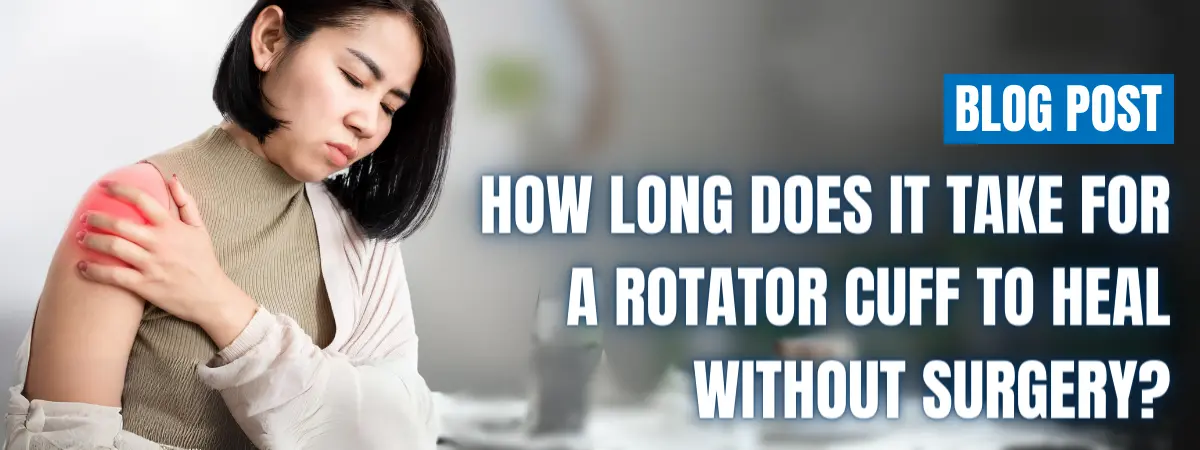Working Time
Book Appointment

The shoulder joint is crucial for various daily activities, from reaching high shelves to playing sports like tennis and volleyball. However, when the rotator cuff, the primary component of the shoulder joint, is injured, it can significantly hinder movement and cause discomfort.
Causes of Rotator Cuff Injuries:
Overuse of the shoulders in certain occupations.
Decreased blood supply to the rotator cuff area with age, leading to reduced healing capacity.
Bone spurs in the shoulder that can wear down the rotator cuff tissues.
Age-related factors, with individuals over 60 being more prone to rotator cuff tears.
Genetic predisposition, as rotator cuff tears may run in families.
Athletic activities like baseball, tennis, swimming, and weightlifting that put strain on the rotator cuff.
Symptoms of Rotator Cuff Injuries:
Difficulty raising arms.
Pain when moving the arm in specific directions or while resting on it.
Weakness in the affected shoulder.
Inability to lift objects as usual.
Treatment Duration:
Mild rotator cuff tears or injuries typically heal within about a month, while more severe cases may require 4 to 6 months or longer for recovery. Factors influencing recovery time include the severity of the tear, age, and underlying health issues. While some people may resume activities like sports within six months, complete recovery from a rotator cuff tear can take up to a year in some cases.
Non-Surgical Treatment Options:
In most cases, conservative treatments like anti-inflammatory medication, steroid injections, and physical therapy are effective in managing rotator cuff injuries. Physical therapy focuses on retraining muscles and bones to restore shoulder function without pain or further damage to the rotator cuff. Even thick rotator cuff tears can be managed with physical therapy and strengthening exercises to reduce pain and improve muscle strength.
In conclusion, physical therapy is often a preferable option for the complete recovery of rotator cuff tears, considering factors like age and lifestyle. Surgery is typically reserved for severe cases or when conservative treatments fail to provide relief. If you're experiencing shoulder pain or suspect a rotator cuff injury, consult a physiotherapist at I-SPORT Medical Centre for personalized treatment and guidance."
Recent Posts
- “Understanding Golfer’s Elbow vs. Tennis Elbow – Deciphering the Differences”
- “Common Sports Injuries in Young Athletes and Strategies for Injury Prevention”
- "Defeating Low Back Pain: Causes, Prevention, and Relief Strategies"
- "Unlocking the Power of Physiotherapy for Sports Injury Recovery"
- "Top 5 Physiotherapy Exercises to Alleviate Knee Pain"
- "How Long Does It Take for a Rotator Cuff to Heal Without Surgery?

